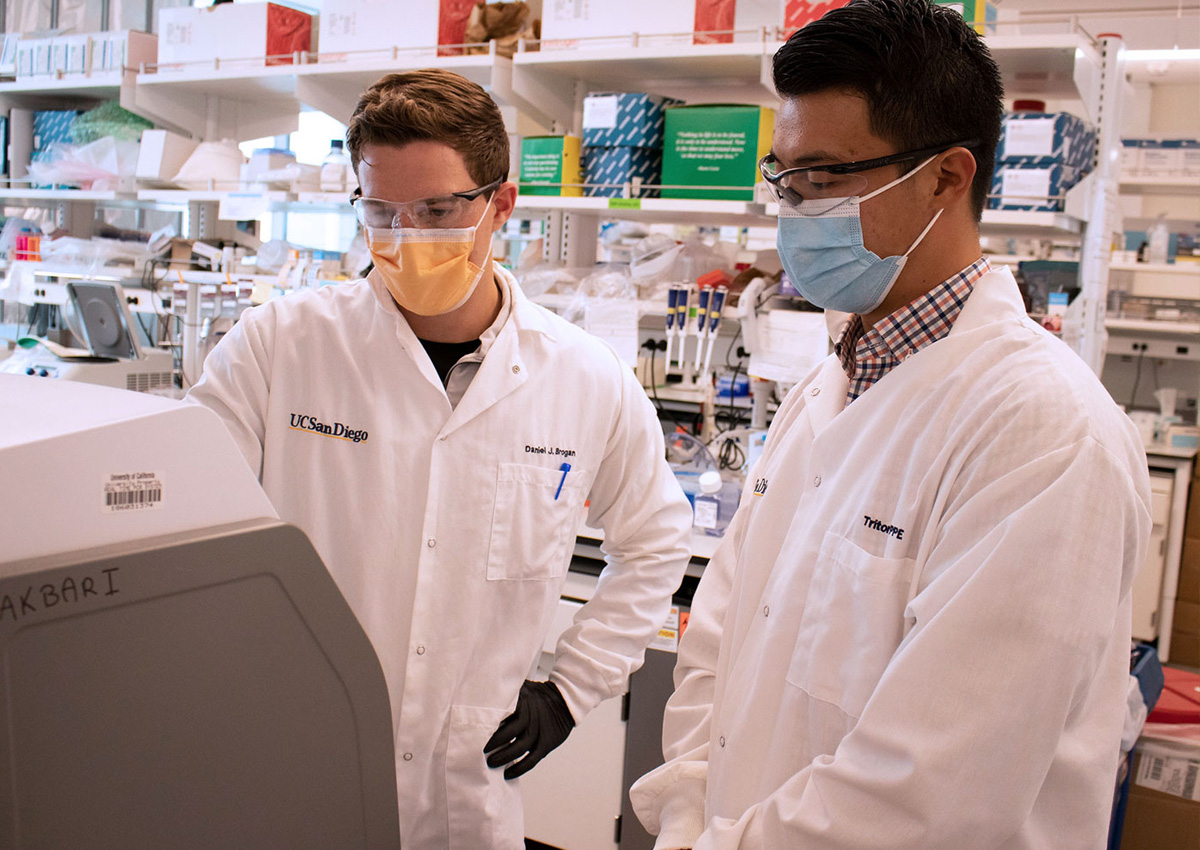
UC San Diego Researchers Develop CRISPR-based Rapid Diagnostic Tool for SARS-CoV-2
November 10, 2021| |
Researchers from the University of California San Diego have created a rapid diagnostic technology that detects SARS-CoV-2, the coronavirus that causes COVID-19.
The new SENSR (sensitive enzymatic nucleic acid sequence reporter) was developed using CRISPR gene editing technology that allows speedy detection of pathogens by identifying genetic sequences in their DNA or RNA. While many human pathogens are detected using the highly accurate and sensitive real-time polymerase chain reaction (RT PCR), the process is time-consuming and requires specialized laboratory equipment. SENSR is designed to simplify the SARS-CoV-2 detection process with the goal of eventual adaptation for in-home use. SENSR is also the first SARS-CoV-2 diagnostic to leverage the Cas13d enzyme (specifically a ribonuclease effector called "CasRx").
Early tests in SENSR's development showed SARS-CoV-2 detection in less than an hour. The researchers note that the technology has the potential to become a powerful molecular diagnostic tool with numerous applications.
For more details, read the article in UC San Diego News Center.
| |
You might also like:
- UC San Diego Nanoengineers Develop Fridge-Free COVID-19 Vaccines Grown in Plants and Bacteria
- MIT and Harvard University Engineers Design Tabletop Device that Detects SARS-CoV-2 from Saliva in One Hour
- Digital CRISPR-Cas-Assisted Assay for Rapid SARS-CoV-2 Detection
Biotech Updates is a weekly newsletter of ISAAA, a not-for-profit organization. It is distributed for free to over 22,000 subscribers worldwide to inform them about the key developments in biosciences, especially in biotechnology. Your support will help us in our mission to feed the world with knowledge. You can help by donating as little as $10.
-
See more articles:
-
News from Around the World
- Svalbard Global Seed Vault Receives First Deposits from Serbia and Latvia
- UN Climate Conference Calls for Urgent Action in Agriculture
- Study Highlights Economic Loss Caused by Barriers of GM Crop Commercialization
- Genomics to Help Breeders Develop Rice with Improved Taste, Cooking Time, Texture, and Appearance
- Scientists Confirm GM Crop Cultivation and Glyphosate Use Reduce Carbon Footprint Caused by Farming
- Food Futures: Commercialization of Gene Edited Crops in Asia and Australia
- 4th Asian Short Course on Agri-biotech, Biosafety Regulation, and Communication (ASCA2021)
- Research Finds Winter Important for Cereal Yield
- Gene Discovery Yields High Promise for Wheat Fertility in Changing Climate
-
Research Highlights
- Bax Gene Confers Bacterial Blight Resistance in Rice
-
Plant
- Scientists Assess Use of Meganucleases in Tomato and Oilseed Rape
-
Health
- UC San Diego Researchers Develop CRISPR-based Rapid Diagnostic Tool for SARS-CoV-2
-
Read the latest: - Biotech Updates (December 17, 2025)
- Gene Editing Supplement (December 17, 2025)
- Gene Drive Supplement (February 22, 2023)
-
Subscribe to BU: - Share
- Tweet

